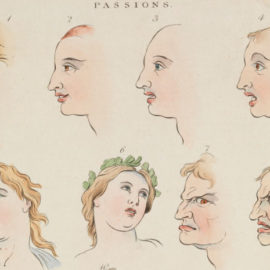

This article is an excerpt from the Shortform summary of "Alcoholics Anonymous: The Big Book" by AAWS. Shortform has the world's best summaries of books you should be reading.
Like this article? Sign up for a free trial here .
What are the main AA themes? How do the 12 steps fit into each of the AA themes?
The 12-step program has 3 major themes. The AA themes are acceptance, amends, and ongoing work.
Read more about the AA themes and principles that support these themes.
What Are the AA Themes?
Largely speaking, the steps fall into three themes:
- Steps 1-5: Acceptance and Soul-Searching—you accept the principles of the program, and you make a complete list of your shortcomings.
- Steps 6-9: Righting Past Wrongs—you seek to remove your shortcomings, and you make amends with people you’ve hurt in the past.
- Steps 10-12: An Ongoing Process—having overcome your past, you go into the future, seeking to continue improving yourself and becoming an agent of good by helping others.
Accept Uncontrollable Cravings
Think of alcoholism as an uncontrollable craving for alcohol. This craving is beyond the mental control of alcoholics. As a result, alcoholics can never safely use alcohol in any form at all. They cannot start drinking without developing the phenomenon of craving, and it becomes virtually impossible to stop.
This craving is not a matter of willpower. Most alcoholics have lost the power of choice in drink. Willpower is basically nonexistent as it relates to alcohol.
This craving is hard to understand for people who don’t feel it. Moderate drinkers often think of alcoholics, “these people are weak. I can take or leave alcohol—why can’t he?” Moderate drinkers don’t have this problem of an uncontrollable craving.
Ongoing Success Requires Absolute Abstinence
To recover, an alcoholic must be sober for the rest of his life. A single drink can kick off a vicious cycle of drinking.
It’s tempting for an alcoholic who has been sober for some period of time to believe that he can drink in moderation. This is a delusion. The book cites an alcoholic who had stayed sober for 25 years, and that he might give alcohol another try. Within two months, he was in a hospital, puzzled and humiliated. Within 4 years, he was dead.
The only way to escape the clutches of alcohol is to never drink again.
AA Themes Are Not Religious
AA is not a religious organization. It demands belief in a higher power, but you can choose your own conception of what that means, whether that’s a religious god or not. You need only believe in some power that is greater than yourself, because, as a mere individual, you have no effective mental defense against drinking.

———End of Preview———
Like what you just read? Read the rest of the world's best summary of AAWS's "Alcoholics Anonymous: The Big Book" at Shortform .
Here's what you'll find in our full Alcoholics Anonymous: The Big Book summary :
- How alcoholism is a nearly insurmountable disease that non-alcoholics can't understand
- The key 12 steps of the program, and why they work
- Why Alcoholics Anonymous isn't a cult and why it works






